
MARINE

offshore

railway industry

others
MARINE
In maritime sector we provide verification of structural designs (newbuildings and conversions) of all ship types:
general cargo ships, multi-purpose dry cargo ships, bulk carriers, oil tankers, chemical tankers, container ships, ro-ro and ro-pax ships, car carriers, passenger ships, naval ships, special ships (e.g. tug, ice breaker, dredger).
Typical analyses
1. Prescriptive and direct strength analysis of hull structures in accordance with rules
FE structural strength analysis usually performed at three levels:
- Global direct strength analysis to assess the overall hull girder response
- Partial ship structural analysis to assess the strength of hull girder structural members, primary supporting structural members and bulkheads
- Local structure analysis to assess detailed stress levels in local structural details
2. Fatigue analysis
- Fatigue due to cyclic stresses from wave loads and ship motions (High Cycle Fatigue).
- Fatigue due to low cyclic stresses from loading-unloading cycles or crane operation cycles (Low Cycle Fatigue).
- From simplified approach to extensive full stochastic analysis.
- Based on FE stress analysis - nominal stresses, hot spot stresses or local stresses at free plate edges
3. Hydrodynamic / seakeeping calculations - direct wave load analysis
- Determination of extreme loads and relevant load cases for ultimate strength calculations.
- Determination of dynamic loads applicable in fatigue strength assessment.
4. Vibration analysis of hull and superstructure
- Global hull and superstructure vibration based on complete ship model
- Vibration analysis focused on large parts of decks and bulkheads, based on complete ship model
- Vibration analysis of local structures (plate fields and stiffeners)
5. Vibration analysis of masts and hull appendages
6. Vibration analysis of foundations and machinery units
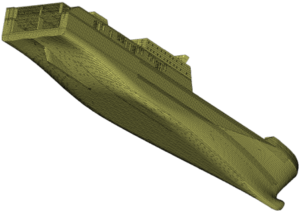 |
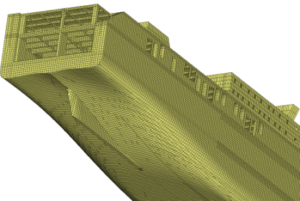 |
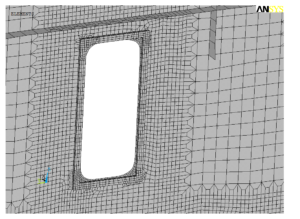 |
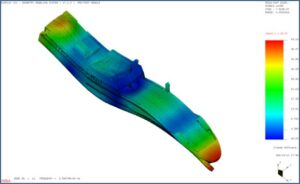 |
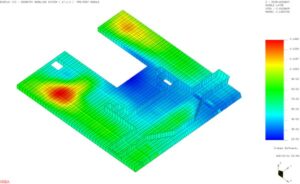 |
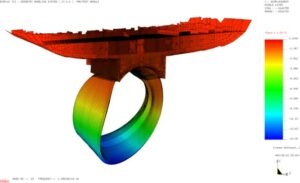 |
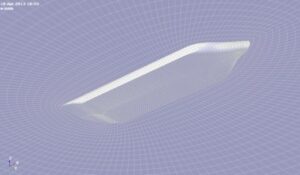 |
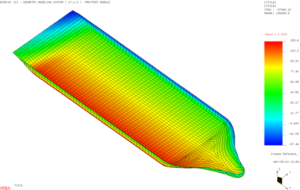 |
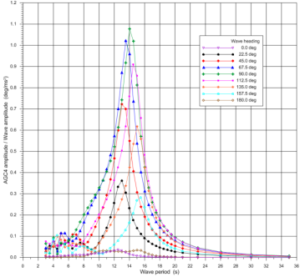 |
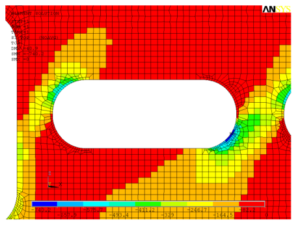 |
 |
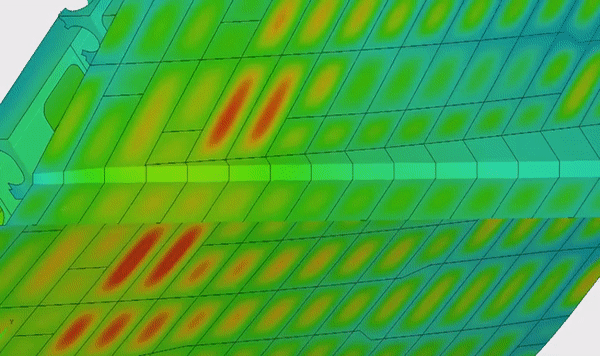 |
